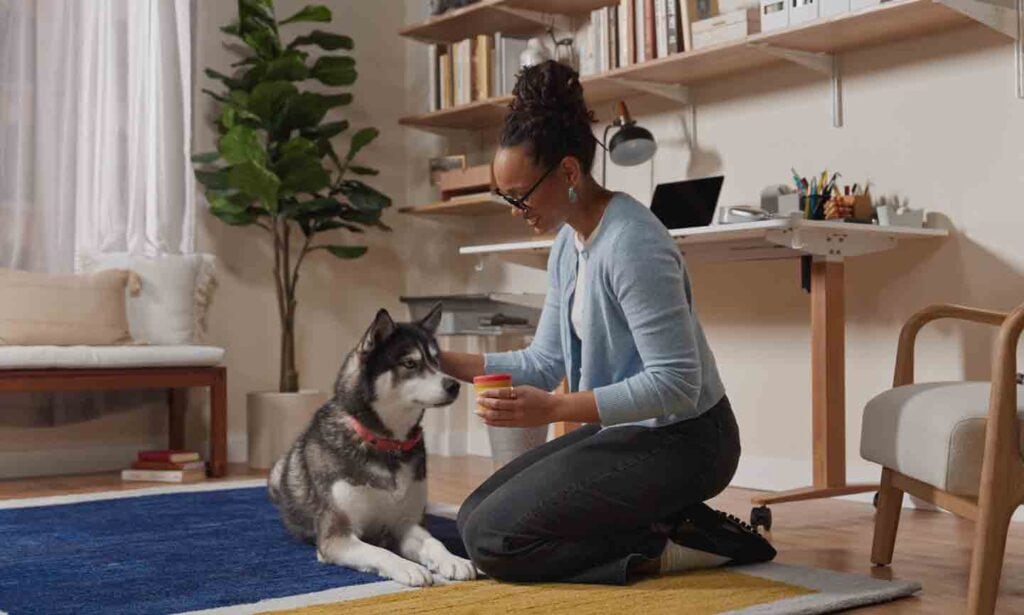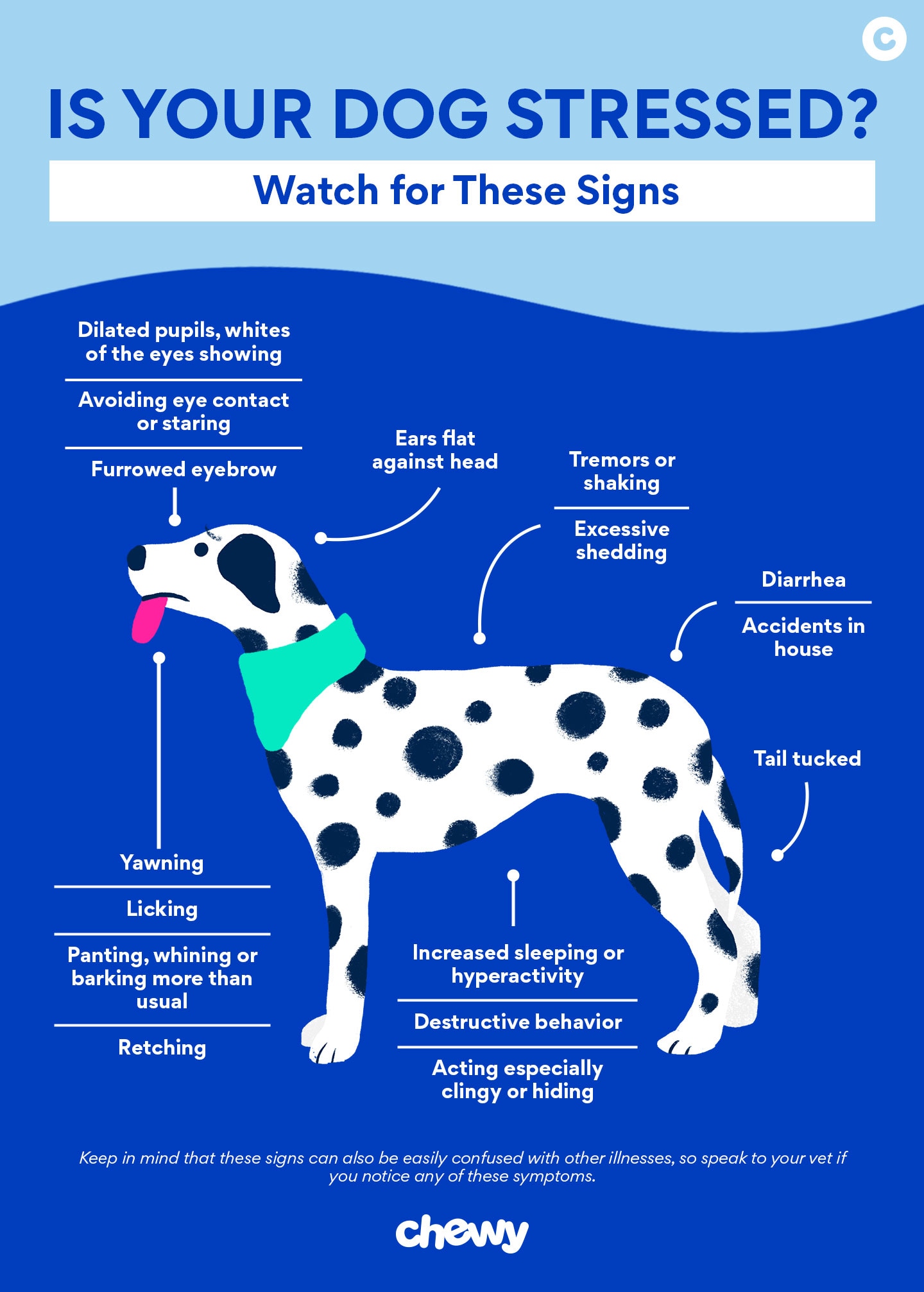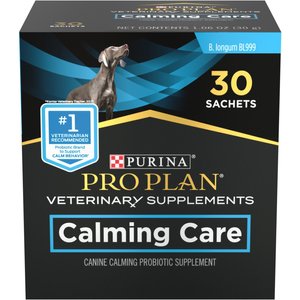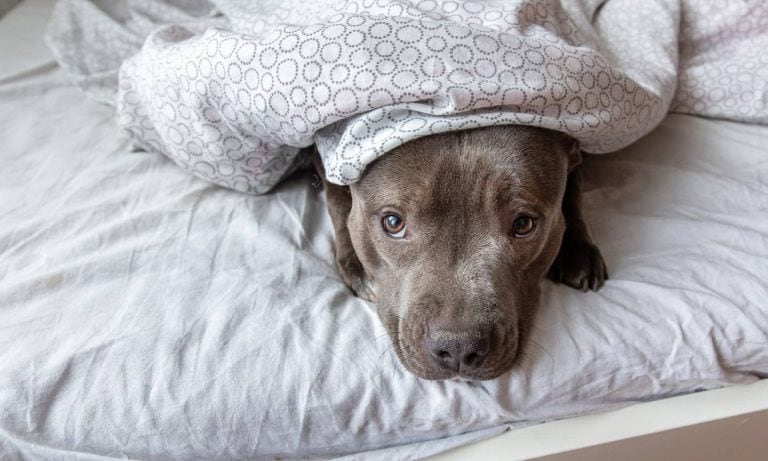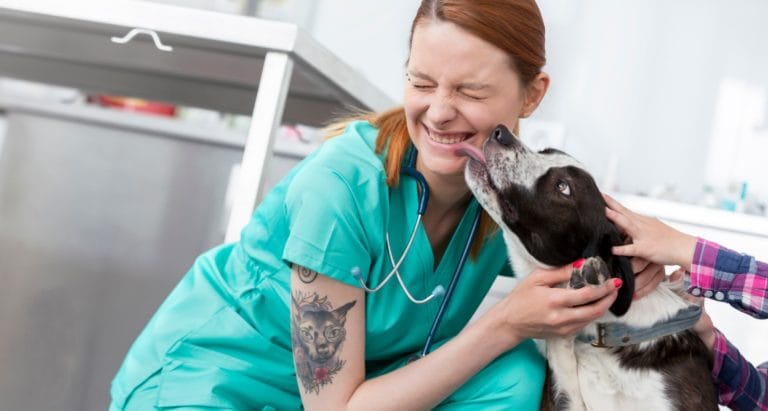If your dog tends to get anxious—whether triggered by fireworks, separation from you, new environments, or even that dreaded low-battery chirp from a smoke detector—you’re certainly not alone. The reassuring news? There are many effective ways to help ease your pup’s stress.
But where do you start? We spoke with two veterinarians to gather practical, compassionate solutions designed to soothe your Nervous Nellie. Here’s how to calm an anxious dog.
In This Guide:
What Is Dog Anxiety?
Dog anxiety is a condition where a dog experiences excessive fear, worry, or apprehension.
Anxiety is not the same as nervousness, though. They’re different in terms of intensity, duration, and impact on your dog’s daily life.
Nervousness is a short-term stress reaction triggered by specific situations, like loud noises or encountering new people. The symptoms are milder and subside once the stressor is removed.
Anxiety, on the other hand, is more chronic and pervasive. It can be triggered by the same things as nervousness but leave a dog feeling tense or on edge long after the initial trigger has passed, or sometimes even when there’s no clear trigger at all. This persistent state of unease can disrupt a dog’s everyday life, leading to ongoing stress and behaviors that can be difficult to manage.
Why Do Dogs Experience Anxiety?
"There are so many reasons why a dog might experience anxiety," says Elizabeth DeLomba, DVM, MBA, senior veterinary services consultant at VetriScience®. She says some of the most common reasons include:
- Loud noises (aka noise phobias): Loud noises, like thunderstorms or fireworks, are a common anxiety trigger in dogs. While some dogs quickly return to normal once the noise stops, loud noises can trigger persistent anxiety in other dogs.
- New environments or experiences: Major changes, like moving to a new home or being sent to doggy daycare, can trigger longer-term anxiety in some dogs.
- Schedule changes: Dogs thrive on routine, so changes in their humans’ schedules—whether due to a new job or altered hours—can set the stage for anxiety.
- Previous trauma: Dogs who have experienced previous trauma or lacked proper socialization during their formative puppy years may develop deep-rooted anxiety. This can show up as fear of certain people, places, or situations that remind them of past negative experiences.
- Separation from their pet parent (aka separation anxiety): When left alone or separated from their favorite human, a dog may become distressed. While some dogs calm down once their pet parent returns, others may develop ongoing anxiety, constantly worrying about the possibility of being left again.
- Aging: As dogs get older, they can develop age-related anxiety, often linked to cognitive decline or sensory changes. This type of anxiety can make previously familiar situations confusing or frightening.
What Are the Signs of Anxiety in Dogs?
Behavioral signs of anxiety include:
- Excessive barking or whining
- Destructive chewing or digging
- Restlessness or pacing
- Hypervigilance
- Trembling or shaking
- Jumping at sudden noises
- Lip licking
- Aggression or irritability
- Attempts to escape or hide
- Loss of appetite
- Yawning
- Potty accidents (i.e., inappropriate urination or defecation)
Physical signs of anxiety include:
- Panting or drooling excessively
- Dilated pupils
- Wide eyes
- Excessive shedding
- Tucked tail
How To Calm an Anxious Dog
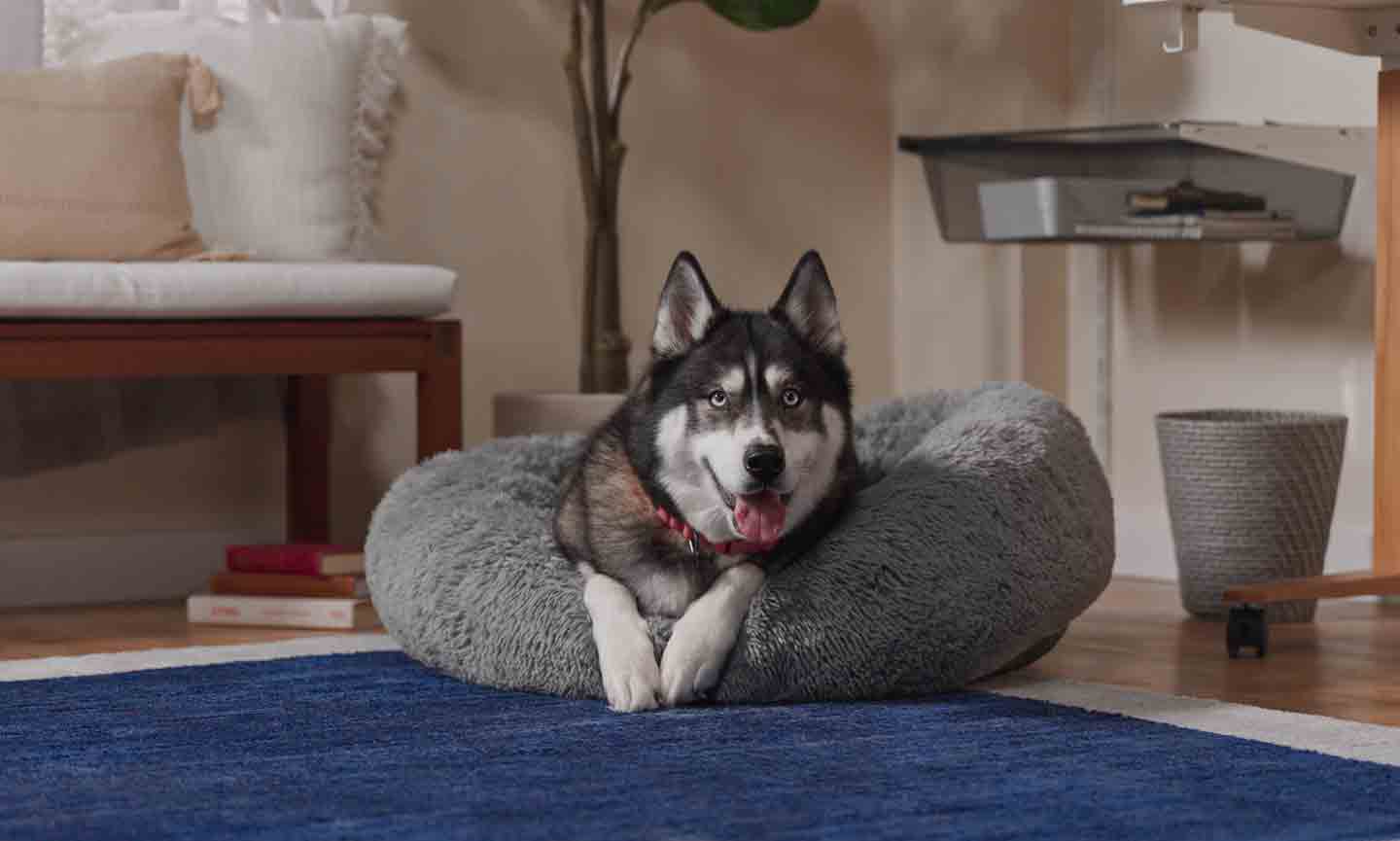
So, how do you help a nervous or anxious pooch? Fortunately, there are plenty of vet-approved methods to help your furry friend chill out. Here are a few things to try.
Use Behavioral Modification Techniques
Desensitization and counterconditioning are techniques that help your dog gradually build tolerance to anxiety triggers.
They involve slowly exposing your dog to the source of their fear at low intensity—like playing a quiet recording of thunder—and rewarding them with a treat for staying calm.
As your dog becomes more comfortable, the intensity of the exposures is increased until they can remain calm during the “real deal.”
Provide Daily Exercise
Whether it’s a brisk walk, a game of fetch, or agility training, regular physical exercise plays a vital role in managing your dog’s anxiety.
Many dogs were bred for an active role or “job,” so without sufficient activity, pent-up energy can lead to restlessness and stress, Dr. DeLomba explains.
Walks also provide opportunities for socialization and exposure to new sights, sounds, and smells, helping build confidence and reduce focus on anxiety.
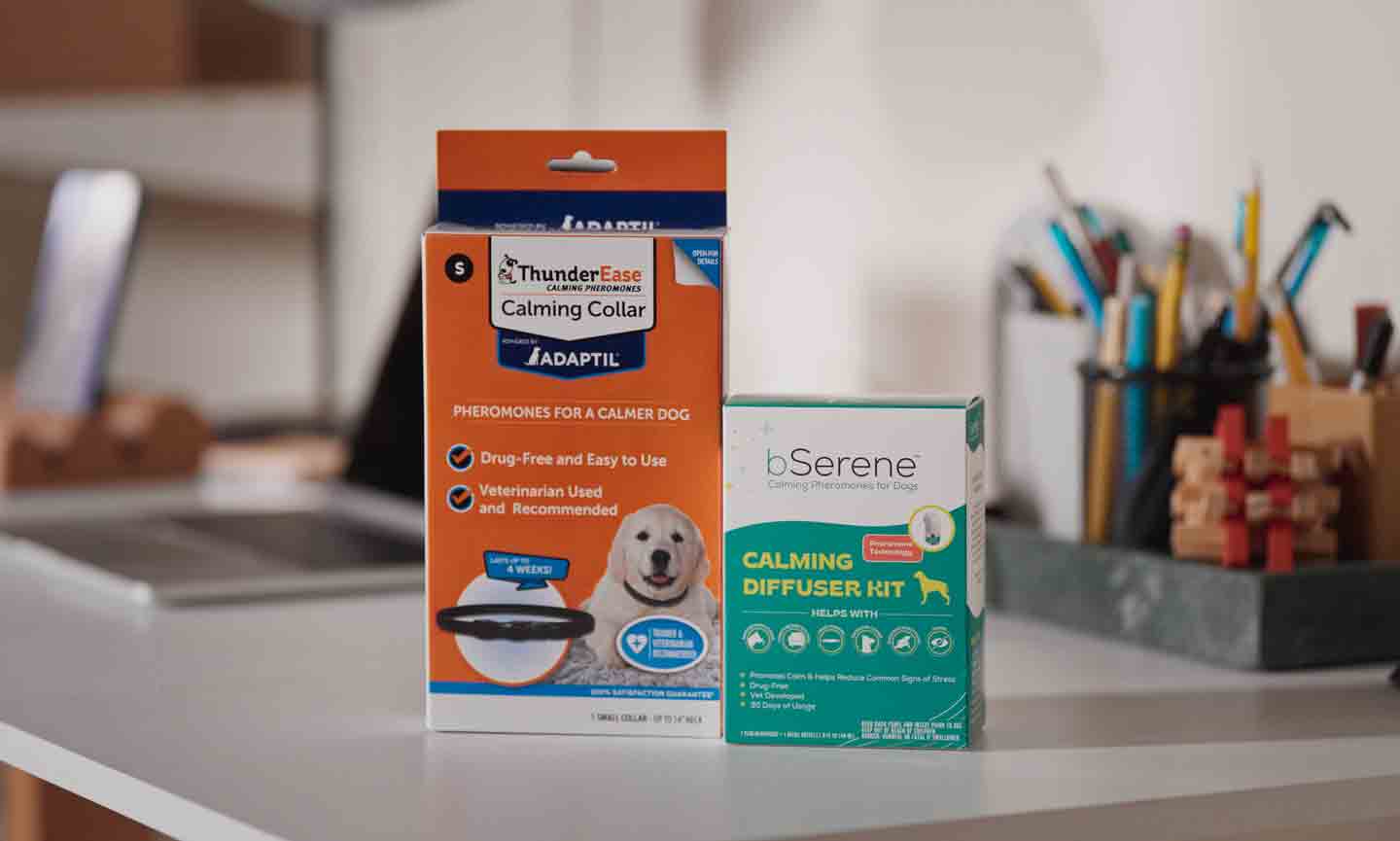
Use a Pheromone Diffuser, Collar, or Spray
Over-the-counter pheromone-based calming aids can help relieve your pup’s stress.
These products release small amounts of a synthetic version of the dog-appeasing pheromone (DAP), says Amy Attas, VMD, founder of City Pets Vets in Manhattan, New York.
“This pheromone is produced by female dogs when they are nursing their puppies and has a calming effect on dogs,” Dr. Attas explains.
Such calming aids include:
- Pheromone collars, like the Thunderease® Calming Dog Collar powered by Adaptil®
- Pheromone diffusers, such as the Thunderease® Calming Dog Diffuser powered by Adaptil®, which plugs into an electrical outlet, like an air freshener
- Pheromone sprays, such as the NaturVet® Quiet Moments® spray
Wrap Them in a Comfort Vest
Comfort vests, such as the ThunderShirt® vest, apply gentle, constant pressure to your dog’s body. This can have a soothing effect, much like swaddling a baby, says Dr. Attas.
“The mechanism for the resulting relaxation is not known but may be due to the release of hormones or neurotransmitters from the hugging sensation,” Dr. Attas says.
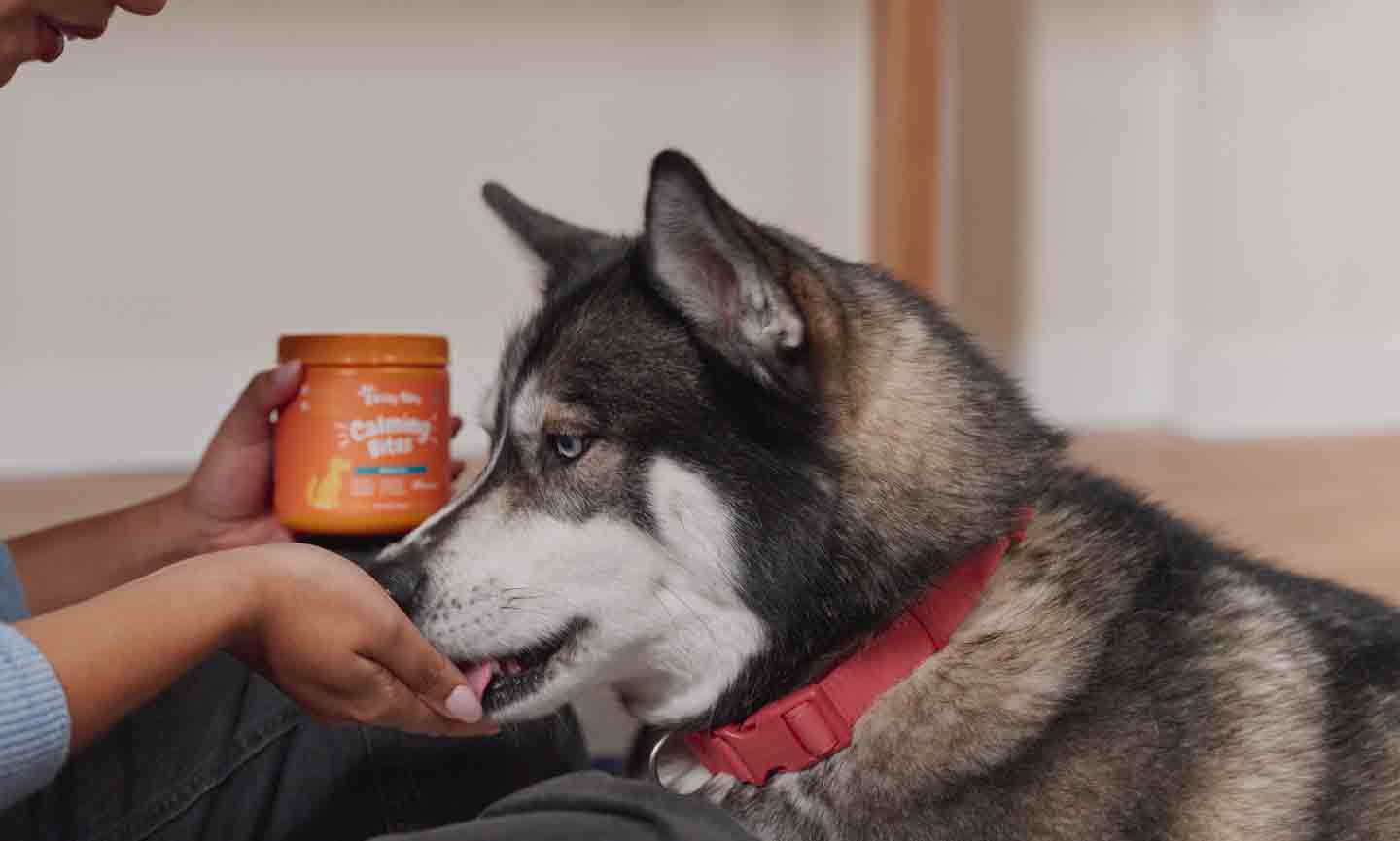
Give Them Soothing Supplements
Certain supplements are designed to reduce stress and promote relaxation. Ingredients that Dr. DeLomba has found most effective include L-theanine, L-tryptophan, colostrum, ashwagandha, and thiamine (vitamin B1). Other popular ingredients include melatonin, chamomile, and passionflower.
“Ingredients and quality are important, so people should look for products that have the National Animal Supplement Council seal,” Dr. DeLomba says. This guarantees that the contents match what’s promised on the label, she explains.
Calming supplements include Zesty Paws® Hemp Calming Bites™, Purina® Pro Plan® Calming Care, Nutramax® Solliquin® Calming Support, and Vetoquinol® Zylkene®.
Your vet will recommend the best calming supplement for your pet.
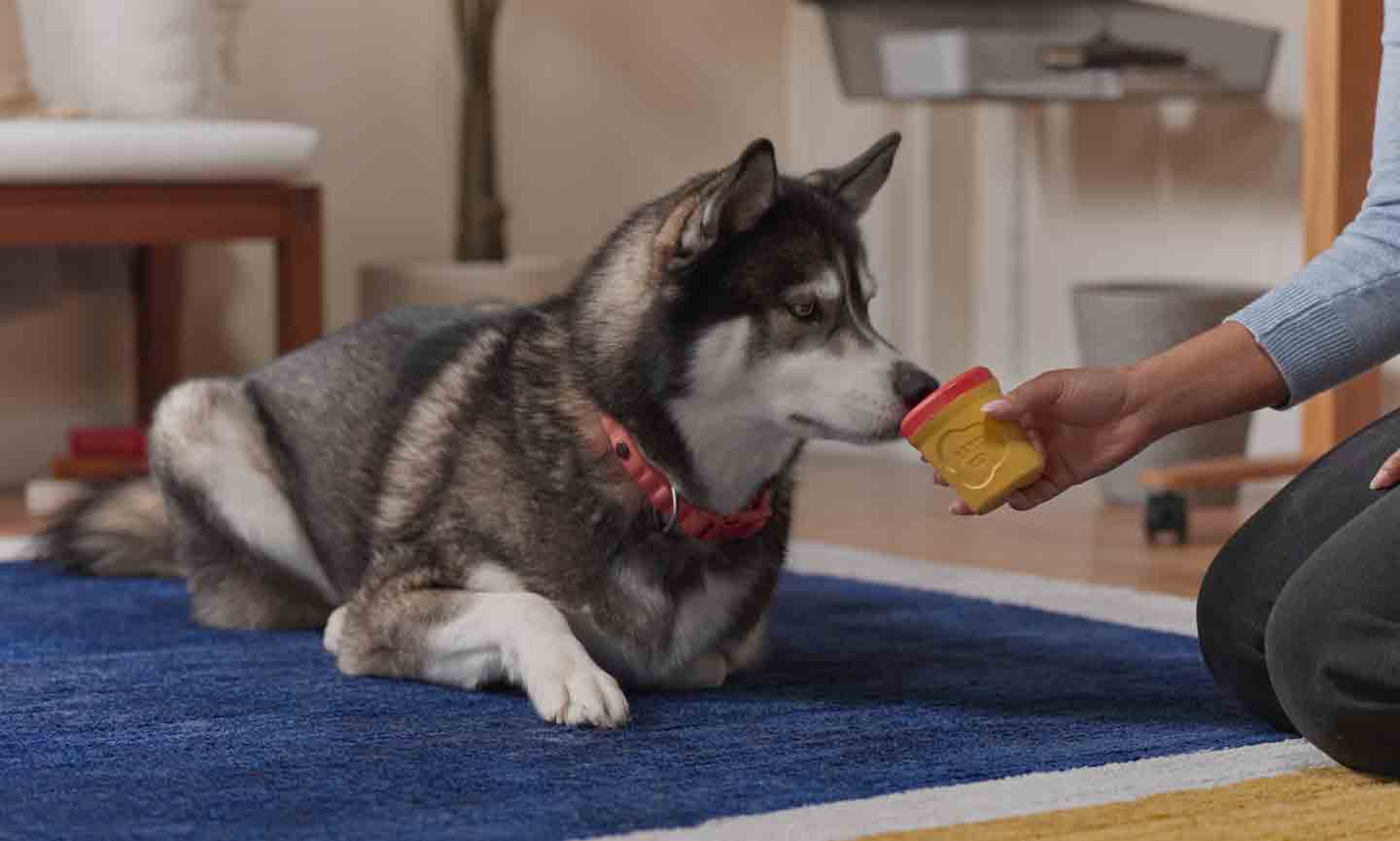
Provide Interactive Toys
Interactive toys and puzzle toys, such as the KONG® Wobbler™ and the Brightkins™ Brain Teaser Treat Puzzle, challenge your dog to problem-solve, which keeps their mind off anxiety and provides a sense of accomplishment.
You might also consider trying the Snuggle Puppy® (aka the cutest dog toy to ever exist!). This soft, snuggly plushie features a pulsing heartbeat and heat source designed to naturally calm and soothe your pup.

Ask a Vet About Anxiety Medications
For dogs with more severe anxiety, a veterinarian may prescribe anxiety medications, usually in conjunction with other methods.
Common anxiety meds for dogs include trazodone and fluoxetine. However, your vet will determine if medication is right for your pet.
How To Prevent Dog Anxiety
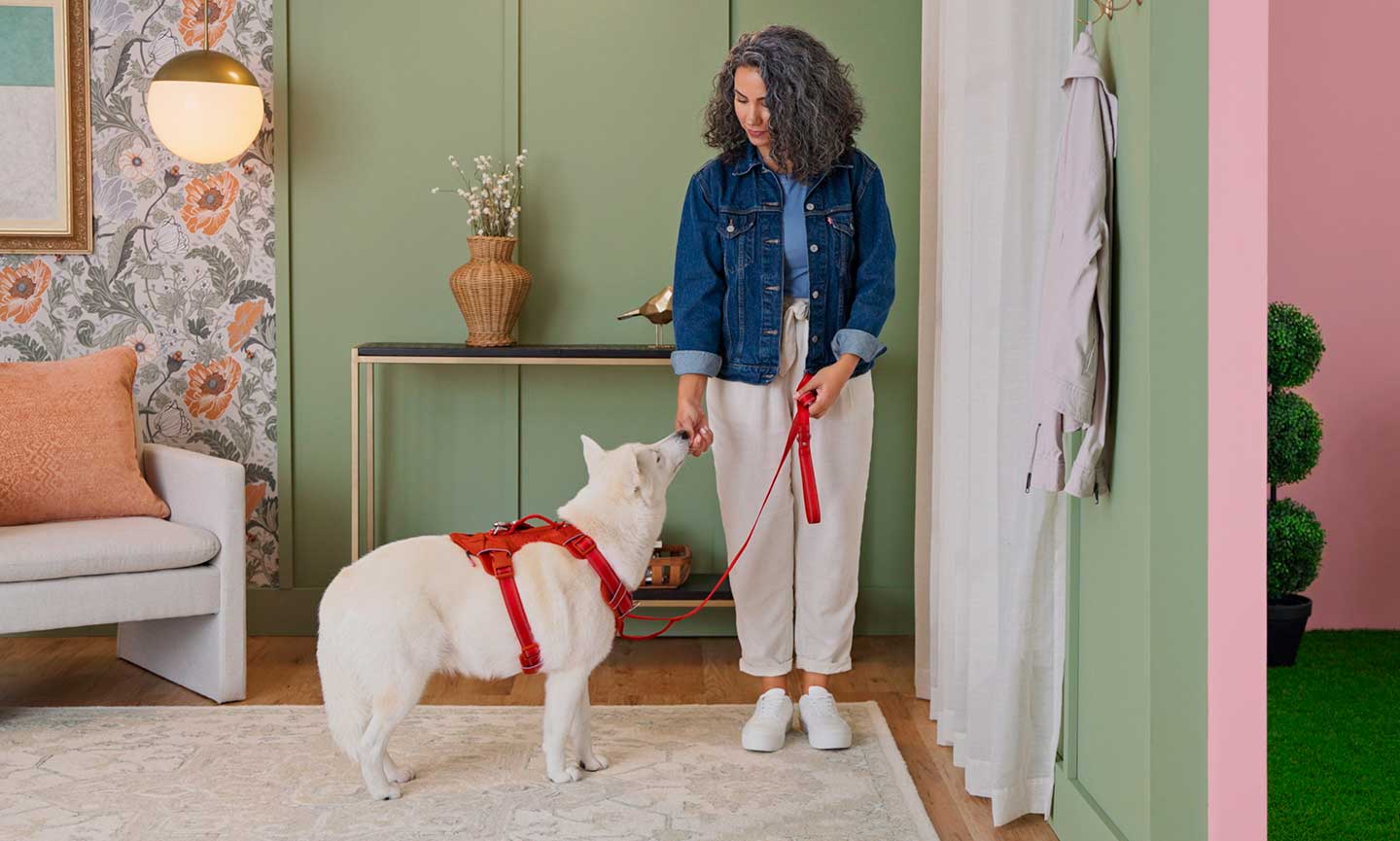
Preventing anxiety in dogs involves creating a stable environment and addressing potential stressors before they become overwhelming.
Here are some proactive steps you can take to reduce your dog’s risk of anxiety (or prevent it from worsening):
- Start training and socialization early. Gradually introduce your dog to new environments, people, and animals to help them become comfortable in a variety of situations.
- Maintain a consistent routine. Dogs thrive on predictability, so sticking to a consistent schedule for feeding, walks, and playtime can help reduce anxiety.
- Provide plenty of exercise and mental stimulation. Daily physical activity and mentally engaging toys or games help reduce pent-up energy and offer distraction.
- Use positive reinforcement. Reward calm behavior with dog treats or praise to encourage relaxation in potentially anxiety-inducing situations.
- Create a safe space. Designate a quiet, comfortable area in your home where your dog can retreat to if they start feeling anxious.
- Address medical concerns. Regular vet visits can help catch health issues early that might contribute to anxiety, such as pain in any dog or cognitive decline in older dogs.
Share:
